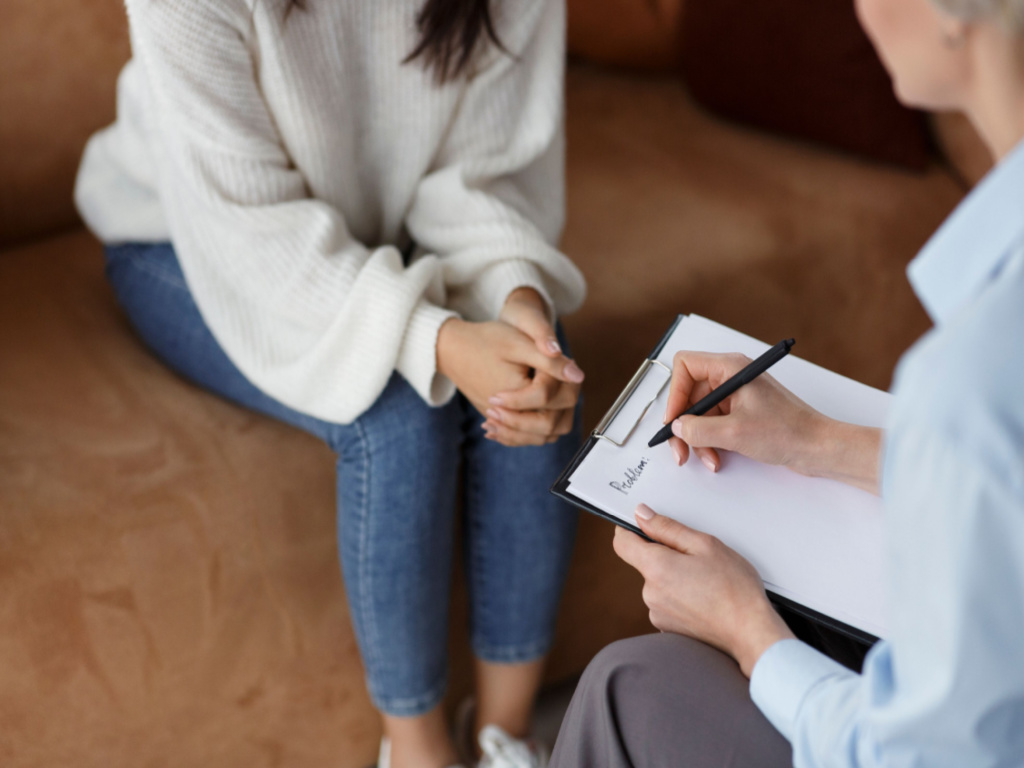What Triggers My Anxiety?
This is an important question to answer for anyone who suffers from anxiety. Being aware of what is occurring within and around you that contributes to feelings of stress and discomfort can be a crucial tool for improving your quality of life. Each person is unique and hence has their own specific set of triggers. Discovering what yours are can be a game-changer in terms of your psychological wellbeing.
In this article, we’ll discuss how to get in touch with your internal landscape. We will also come to recognize what triggers your anxiety. Lastly, we will introduce some tools for improving your resilience and shortening your refractory period (the time it takes to return to emotional equilibrium).
Anxiety Defined
To truly understand an experience it is useful to clearly define it. According to the American Psychological Association, “Anxiety is an emotion characterized by feelings of tension, worried thoughts and physical changes like increased blood pressure.
People with anxiety disorders usually have recurring intrusive thoughts or concerns. They may avoid certain situations out of worry. They may also have physical symptoms such as sweating, trembling, dizziness, or a rapid heartbeat.”1
These are undesirable sensations with psychological, emotional, and physical ramifications. Being that there are multiple layers of impact, there are also many root causes for anxiety. Though the causes are personal and individual, it’s useful to examine some of the common ones.
Common Sources Of Anxiety
We live in a fast-paced and frenetic world that is rife with potential anxiety triggers. Still, they tend to group under some major headings. These are worth examining if you’re seeking greater clarity around what personally sends you into a tailspin. The following four are some of the most common and powerful sources that people tend to face:
- Unresolved Trauma
- Isolation/Loneliness
- Stress (physical, emotional, and environmental)
- Poor Diet/Dysbiosis (imbalance in the microbiome of the gut)
Fortunately, though these issues are ubiquitous, they are also very much under your influence if you should choose to address them. With this goal in mind, we’ll discuss each in turn and consider methods to remedy them.

Resolving Trauma
Granted this is a big task, and it may take a lifetime to thoroughly unpack the sources of your trauma. This is particularly important if they are of the capital T variety (war, dismemberment, physical and/or sexual abuse, etc.). However, the simple recognition that the work needs doing and the commitment to pursue healing is a powerful step toward personal liberation from anxiety.
As with any major undertaking, addressing trauma can only be done a step at a time. Make note that each person’s path will be their own. Still, the following suggestions can be employed by anyone to positive effect:
- Talk about it- Speaking about what has occurred in your life and what you are feeling helps to unburden your mind and body thereby reducing anxiety. Whether with a friend, a spouse, a pastor, or a trained mental health professional, this is helpful.
- Ask for help– we all need the support of others. Recognizing that we are struggling before allowing overwhelm to set in can help prevent unnecessary suffering.
- Create safe places– a major facet of healing is being in a situation where you feel safe. This allows the parasympathetic (rest/digest) portion of the autonomic (automatic) nervous system to function optimally.
- Breathe deeply– deep diaphragmatic breathing sends the signal to your body that you are safe. Long exhales particularly initiate parasympathetic action and being thoroughly oxygenated reduces anxiety.
Reducing Isolation/Loneliness
Humans are social beings. It is hypothesized that our large brains developed as the result of the complex ways we interact with one another. In addition, everything from how we hear sounds to the fact that we have whites in our eyes functions to increase our ability to track and interpret what others are experiencing.
In the absence of healthy and regular contact with others anxiety and depression tend to soar. The most triggering scenario is when people are both isolated and lonely. The following suggestions can help to reduce both:
- Cultivate relationships– fostering a deeper connection with people you already know. Also, find opportunities to meet new people (join groups, take classes, visit parks, go to concerts, etc.) reduce isolation.
- Create healthy patterns– develop regular daily behaviors that support health. Clean eating, regular exercise, time in nature, solid sleep, and creative expression make you function better, and helps life feel full reducing loneliness.
Managing Stress
Stress is a regular part of modern life and it comes in many forms. From the physical challenge of toxins in our air, water, and soil to the psychological impacts of our world’s mad-dash information exchange and constant attentional demands.
We cannot avoid stress, but we can learn to manage it in healthier ways. This serves to reduce anxiety by making us less susceptible to its triggers. The following methods are tried and true stress reducers:
- Practice mindfulness– prayer, meditation, yoga, qigong, and mindful breathing are proven methods for calming the nervous system and restoring equilibrium to the body. These activities decrease your reactiveness and reduce your recovery time after experiencing a stressor.
- Get down to earth– walking barefoot, gardening, and simply being in nature act on the body in a grounding way, helping to soothe and refresh the entire system.
Healing The Gut
An improper balance in the ecosystem of the digestive tract, wherein bad bacteria outweigh the good, has been linked to anxiety and other mood disorders. The brain-gut axis is modulated by the vagus nerve. The vagus nerve is a cranial nerve that runs from the brain, through the chest, to the abdomen. Many of the signals being sent along this superhighway are influenced by bacteria in the gut. Thus, it’s essential to support the good guys so the right messages are being sent. The following behaviors help:
- Keep it real– whole, preferably organic, unprocessed foods nurture beneficial bacteria supporting a healthy body and mind.
- Move freely– you want to be regularly moving your body and moving your bowels. This is so that toxins don’t build up and you oxygenate your system and move your lymph.
The Takeaway
What triggers your anxiety may be different from what triggers mine. Regardless, we all benefit from becoming more attentive to our internal landscape. There are many things we can do to support our mental health. Whether it’s that we need to clean up our diet, get more exercise, sleep more deeply, reduce our stress, or pull the skeletons from our closets . That you’re reading these concluding remarks is a good show of your commitment to that end and likely a big step away from the trials of anxiety.
Rachel Ruland graduated from the Institute for Integrative Nutrition* where she learned innovative coaching methods, practical lifestyle management techniques, and over 100 dietary theories – Ayurveda, gluten-free, Paleo, raw, vegan, macrobiotics, and everything in between. She has studied with the world’s top health and wellness experts. Her education has equipped her with extensive, cutting-edge knowledge in holistic nutrition, health coaching, and prevention. She has certifications in HeartMath and Soul Speak as well as a Bachelor’s in Psychology.

